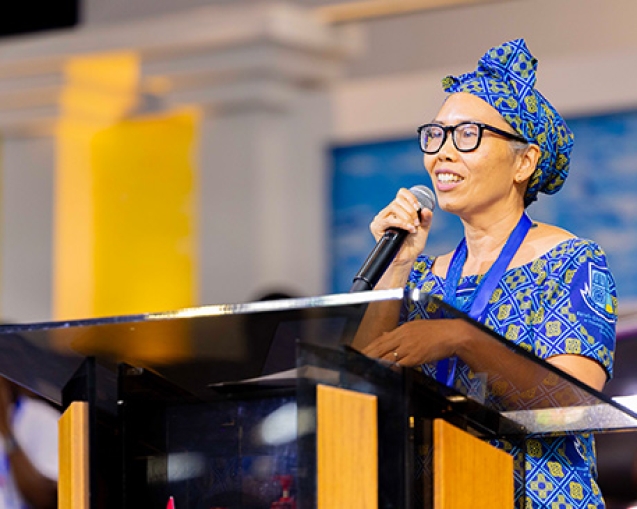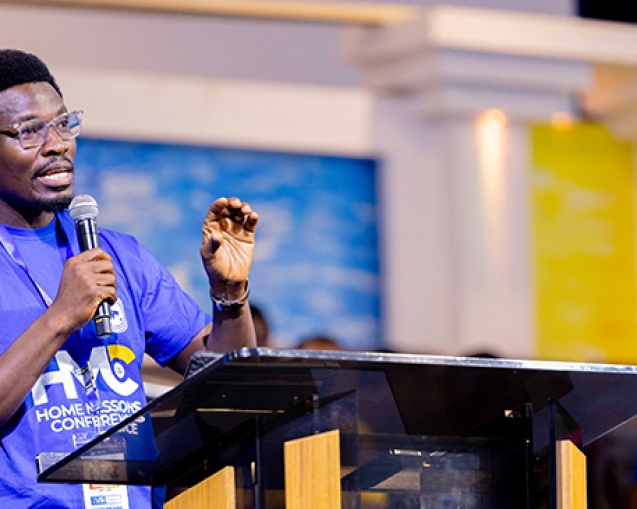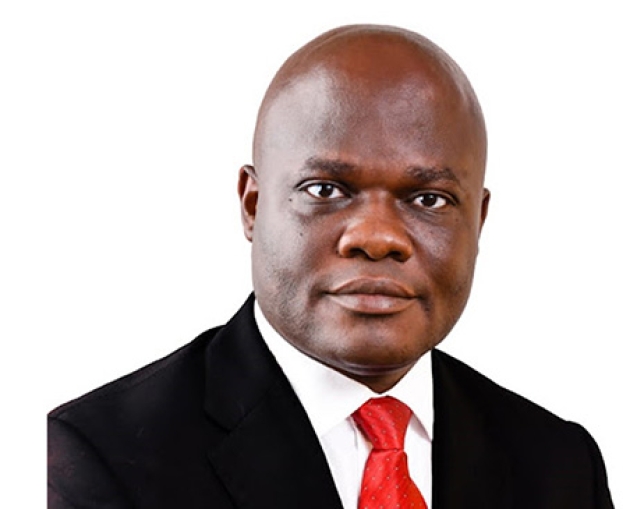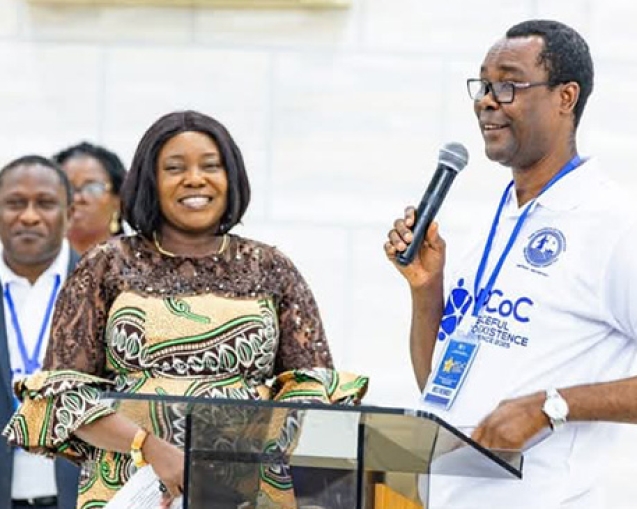INTRODUCTION
By-elections in Ghana, from time immemorial, have been characterized by several activities – some good and bad. To the extent that by-elections are now synonymous with fast-paced development for previously abandoned communities. Recent happenings in Kumawu and Assin North lend credence to this assertion. In fact, a comment by a lady in Obuasi, captured on various media platforms, expressing her wish for the death of their Member of Parliament so they could see development when a by-election is conducted, speaks volumes.
Every event in life happens for a reason, and these occurrences provide valuable lessons for our Christian journey. They are written as examples for our instruction, as stated in 1 Corinthians 10:11.
Fortunately, as Christians, we do not need anyone to die for a community to experience development because Jesus has already died once and for all (Romans 6:10). All we need to do is carry the message of His death to all, as commanded in Matthew 28:18-20. But the question is, how do we do it? What model should we follow?
One definition of a model, according to the Merriam-Webster Dictionary, is an example of imitation or emulation. There are many models of evangelism, including proclamation, apologetics, lifestyle, service and social intervention, power, media, specialised and targeted ministries, street, festival, and event evangelism, etc. However, I would like to suggest another model: the By-Election Model of Evangelism.
Though by-elections are a worldly affair, my personal observations while participating in the elections as a constituent and voter in a fiercely contested constituency have revealed valuable lessons for believers. Despite the crookedness of the world, there are many things we can learn from how politicians operate.
EVANGELISM VERSUS POLITICAL CAMPAIGNS
J.I. Packer’s definition of evangelism states that “to evangelise is to present Christ Jesus in the power of the Holy Spirit, that people shall come to put their trust in God through Him, accept Him as their Savior, and serve Him as their King in the fellowship of His Church.”
For politicians, Matthew 6:33, “But seek first the kingdom of God and his righteousness, and all these things will be added to you,” could be interpreted as “Seek first the political kingdom and its power, and all other things will be added to you.”
My firsthand observations reveal commonalities among all political parties and candidates during campaigns. They all have a Message; They all have a Plan/Strategy; They all Mobilise and Deploy Resources, and they all take Action.
- Message
Central to every political campaign is the message they carry and share. Although some of these messages may be described as frivolous propaganda, others make significant sense. Their messages are well-crafted and delivered to resonate with their target audience. They are often simple and easy to remember, accompanied by various taglines. If these messages are well-delivered, the ultimate aim is to secure votes for their preferred party/candidate.
It is worth noting that every message carries the thoughts, will, and emotions of the speaker, and its impact on the audience is enormous. Words are life and spirit (John 6:63), and their impact on people’s lives is indescribable.
Central to the Christian Gospel is Christ and Him crucified (1 Corinthians 2:2, Acts 4:12). A good gospel message must convey God’s thoughts, will, and feelings toward humanity and the hope that comes with it (John 3:16). This message should be simple, backed by the power of the Holy Spirit. As Apostle Paul puts it in 1 Corinthians 2:1-5:
“1 And I, when I came to you, brothers, did not come proclaiming to you the testimony of God with lofty speech or wisdom. 2 For I decided to know nothing among you except Jesus Christ and him crucified. 3 And I was with you in weakness and in fear and much trembling, 4and my speech and my message were not in plausible words of wisdom, but in demonstration of the Spirit and of power, 5that your faith might not rest in the wisdom of men but in the power of God.”
A By-Election Model Gospel Message, therefore, should be simple, easy to remember and understand, projecting Christ Jesus, backed by the power of the Holy Spirit, and aimed at convicting even the vilest of sinners and bringing them to the saving knowledge of Christ. Such messages should be refreshing to a thirsty soul, just like cold water (Proverbs 25:25).
- Plan/Strategy
Planning and strategising are vital in all human endeavours, and our evangelism enterprise is no exception. Benjamin Franklin noted, “If you fail to plan, you are planning to fail.” Many evangelism drives today are unplanned and uncoordinated. Politicians are strategists who take advantage of all situations, both favourable and unfavourable, to drive home their messages. They proclaim their messages readily, in season and out of season (2 Timothy 4:2).
Why do you see them at various social functions that sometimes have nothing to do with them? Why do they go to great lengths to please their targeted groups? I observed politicians weeding at people’s farms, helping them dry cocoa beans, pounding fufu, and stirring banku for them. Were they demeaning themselves? No! They were being strategic! They did it to secure at least one vote!
They move from house to house, use available mass media and PA systems, gather crowds of like-minded individuals, and visit farms, ghettos, places of worship, and areas previously deemed no-go zones. They traverse rugged roads, walk in flooded paths, defy the rains, change their usual way of dressing, and alter their normal routines. Why? To secure one vote and win power.
Theodore Roosevelt said, “People don’t care how much you know until they know how much you care.” Many believers are disconnected from our communities, often appearing antisocial. How then can we effectively deliver our message to them?
Paul had a principle of adaptation for the sake of the gospel. In 1 Corinthians 9:20, he says,
“To the Jews I became as a Jew, in order to win Jews. To those under the law I became as one under the law (though not being myself under the law) that I might win those under the law.” Notice the repetition of the phrase “that I might win…”
Can we start connecting with sinners in the best possible way instead of shunning them? Yes, we must avoid participating in their sinful activities, but we should not shun them. After all, Jesus was described as an associate of sinners (Luke 15:1, 2). We must strategically plan to win souls, no matter the cost. Nothing can compare to the value of a single soul (Matthew 16:26).
- Mobilisation and Deployment of Resources
One significant aspect of recent by-elections is the mobilisation and deployment of resources—human, material, and financial—in the shortest possible time. The aim, as mentioned earlier, is to win at least one vote. These communities witness an influx of people from all walks of life. For once, I thought the capital of Ghana had been moved to my once quiet and unknown community. The whole place was bursting with life. It was not business as usual. A vote was needed!
The crème de la crème of society and those in power left the comfort of their homes and offices to come and campaign tirelessly. Paperwork, protocols, bureaucracies, and formalities mattered little compared to the thumbprint of that one voter. Everyone went to the field. Even the apostles did not stay behind in Jerusalem (Acts 8:1).
If human resources are one foot of the vehicle that carries the gospel, then the other foot is made up of material and financial resources. The political class knows this very well. Have you heard of people called “party financiers”? What is their responsibility and interest? Their purpose is to mobilise logistics and funds to sponsor all political endeavours. Political campaigns are costly, but the joy of winning elections is immeasurable.
Evangelism is an expensive venture, but the cost incurred cannot be compared to the value of a soul, which is worth more than all the riches of the world combined (Matthew 16:26).
In the Scriptures, it was not only the rich who contributed to the propagation of the gospel; the poor and middle-income individuals did so as well. The rich, like Lydia, provided accommodation for Paul (Acts 16:14, 15). The middle-income earners, such as Mary Magdalene, Joanna, and Susanna, provided for Jesus and His disciples (Luke 8:1-3). The desperately poor, like the church in Macedonia, begged earnestly for the favour of taking part in the relief of the saints (2 Corinthians 11:9, 2 Corinthians 8:1-5). What was their secret? The Macedonian Church provides an answer in 2 Corinthians 8:5: “they gave themselves first to the Lord and then by the will of God to us.”
“3 For they gave according to their means, as I can testify, and beyond their means, of their own accord, 4begging us earnestly for the favour of taking part in the relief of the saints—5and this, not as we expected, but they gave themselves first to the Lord and then by the will of God to us” (2 Corinthians 8:3, 4).
It is time to channel more resources into the soul-winning enterprise. It is time for more members of the church, from ministers to the laity, to provide the needed financial and logistical support for this endeavour that carries eternal value.
- Action
Finally, the political parties took action. They moved forward with all the energy they had left. They did not care who they shared their messages with. They went into every nook and cranny of the respective constituencies. They defied the rains. They trampled through floods. They climbed mountains and hills. They spent their airtime calling voters to see if their message had resonated and if they were willing to make the right decision. They did all this to secure one vote for their political fortune. Oh, what zeal!
Joel Arthur Barker, an American futurist, asserts that “vision without action is merely a dream. Action without vision just passes the time. Vision with action can change the world.” Paul notes in Romans 10:13-15 that everyone who calls on the name of the Lord will be saved. But how?
“13 For ‘everyone who calls on the name of the Lord will be saved.’ 14 How then will they call on him in whom they have not believed? And how are they to believe in him of whom they have never heard? And how are they to hear without someone preaching? 15 And how are they to preach unless they are sent? As it is written, ‘How beautiful are the feet of those who preach the good news!'” (Romans 10:13-15)
Politicians see votes, and we see souls. Can the church embrace such zeal and mobilise as a mighty army to battle for the souls of men for the Lord (John 2:17, Romans 12:11)? Can we put into practice our teachings on evangelism beyond the confines of our church buildings? Can we end the talk shows within the church walls and go out with the sole purpose of seeing Christ enthroned in the hearts of men, just as David’s men did for him (1 Chronicles 12:38)? Are we ready to preach the gospel in season and out of season (Romans 1:15,16, 2 Timothy 4:2, Ecclesiastes 11:4)? Can we make resources—human, material, and financial—available for the sake of the gospel (1 Corinthians 9:22, 1 Corinthians 10:33)? Can we hold firmly to our time-tested message of salvation (1 Corinthians 1:18)? Can we have all hands-on deck without exception (2 Timothy 4:5, Acts 8:1)? Can we carry the message of the cross across boundaries? Let’s consider these questions.
CONCLUSION
In our dying world today, more aggressive methods of evangelism need to be pursued. We need an evangelism approach that requires the active involvement of all, from the apostles to the laity. Evangelism that does not consider the weather before propagating the seed of the good news; Evangelism that encourages the mouse to go to the cat and ask if it has given its life to Christ; Evangelism that is well thought out and backed by the fire and power of the Holy Spirit; Evangelism that knows no boundaries. I propose the By-Election Model of Evangelism.
Written by Pastor Samuel Avornyo (Assin Bereku District)

















